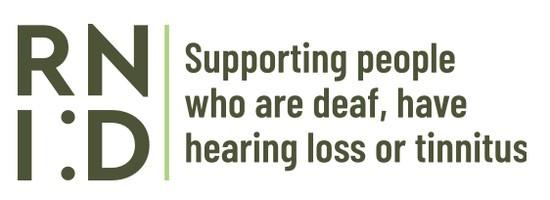Latest News from the Sussex Brain Bus

The social brain: interacting our way to healthy ageing
 Working with colleagues at Osaka University, Japan, Dr Sarah King will study the biological impact of social isolation and establish a new interdisciplinary model of healthy social behaviour across the lifespan. The project has been funded by The Leverhulme Trust.
Working with colleagues at Osaka University, Japan, Dr Sarah King will study the biological impact of social isolation and establish a new interdisciplinary model of healthy social behaviour across the lifespan. The project has been funded by The Leverhulme Trust.Project Details
Social interaction is critical for healthy living and longevity. Japanese researchers are at the forefront of this area, being the first to recognise and study the impact of social withdrawal in teenagers and young adults (Hikikomori) and the benefits of social interaction and strong social structures on healthy ageing through the study of the country’s centenarians - Japan has the highest prevalence of people aged over 100 years.

With COVID-19 lockdowns exacerbating the incidence and effects of social isolation across the globe, it is increasingly important that we understand the long-term impacts on the brain, well-being, and healthy ageing. Recognising this, the Japanese government passed a bill into law last year to specifically tackle social isolation and loneliness across the country.
My everyday research focuses on how different risk factors interact across the lifespan to increase the likelihood of Alzheimer’s disease. My work keeps coming back to the influence and importance of social interaction, especially in older age. It is also a factor that we can readily modify, so understanding critical periods and processes for social interaction will allow us to target interventions at the most appropriate times.
I will use my fellowship to study the impact of social interaction and isolation on the brain across the lifespan and build an interdisciplinary model that can be interrogated with future research. Working with colleagues at Osaka University, I will use in vivo brain imaging combined with social interaction measures to determine how social isolation impacts social behaviour in young and old mice. We will explore the neurobiological underpinnings of vulnerability factors and how well interventions work at different ages. Alongside this lab-based work, I will visit and explore the practices and data from researchers and experts around Japan, studying social withdrawal, isolation and loneliness across the lifespan. These visits will contribute to an interdisciplinary informed model of the lifespan effects of poor social interaction. They will develop testable hypotheses for further study in our mouse models, as well as translational studies in human populations.
Combining knowledge across disciplines will enrich the evidence base for the impact of social isolation on well-being and healthy ageing across the lifespan. I am thrilled to spend ten months immersed in a new culture, working with researchers in Japan, and putting my theories to the test by providing my and my sons’ brains with lots of new social context and interaction!
Dr Sarah L King
University of Sussex
International Fellowship 2024
My everyday research focuses on how different risk factors interact across the lifespan to increase the likelihood of Alzheimer’s disease. My work keeps coming back to the influence and importance of social interaction, especially in older age. It is also a factor that we can readily modify, so understanding critical periods and processes for social interaction will allow us to target interventions at the most appropriate times.
I will use my fellowship to study the impact of social interaction and isolation on the brain across the lifespan and build an interdisciplinary model that can be interrogated with future research. Working with colleagues at Osaka University, I will use in vivo brain imaging combined with social interaction measures to determine how social isolation impacts social behaviour in young and old mice. We will explore the neurobiological underpinnings of vulnerability factors and how well interventions work at different ages. Alongside this lab-based work, I will visit and explore the practices and data from researchers and experts around Japan, studying social withdrawal, isolation and loneliness across the lifespan. These visits will contribute to an interdisciplinary informed model of the lifespan effects of poor social interaction. They will develop testable hypotheses for further study in our mouse models, as well as translational studies in human populations.
Combining knowledge across disciplines will enrich the evidence base for the impact of social isolation on well-being and healthy ageing across the lifespan. I am thrilled to spend ten months immersed in a new culture, working with researchers in Japan, and putting my theories to the test by providing my and my sons’ brains with lots of new social context and interaction!
Dr Sarah L King
University of Sussex
International Fellowship 2024



About The Leverhulme Trust
The Leverhulme Trust is a large national grant-making organisation in the United Kingdom. It was established in 1925 under the will of the 1st Viscount Leverhulme (1851–1925), with the instruction that its resources should be used to cover certain trade charities and support "scholarships for the purposes of research and education."
International Fellowships Grants are awarded for established researchers to develop new knowledge, skills and ideas in one or more research centres outside the UK
The scheme may be used for:
The Leverhulme Trust is a large national grant-making organisation in the United Kingdom. It was established in 1925 under the will of the 1st Viscount Leverhulme (1851–1925), with the instruction that its resources should be used to cover certain trade charities and support "scholarships for the purposes of research and education."
International Fellowships Grants are awarded for established researchers to develop new knowledge, skills and ideas in one or more research centres outside the UK
The scheme may be used for:
- developing new lines of research through overseas collaboration
- making ‘discipline-hopping excursions’ into new areas of research
- developing innovations in teaching
- preparing for collaborative grant applications
- observing and sharing ground-breaking techniques or practices


Get your hearing checked!

Hearing loss is one of the risk factors for Alzheimer’s disease that we can do something about. The RNID have developed an easy online hearing test, that you can do anytime and will let you know if you should go for a further check up. Read more about the RNID Hearing Tests

 Healthy Brain Tips
Healthy Brain Tips Get Involved
Get Involved Get Help
Get Help The Brain Bus
The Brain Bus The Project and Us
The Project and Us Dementia Research
Dementia Research